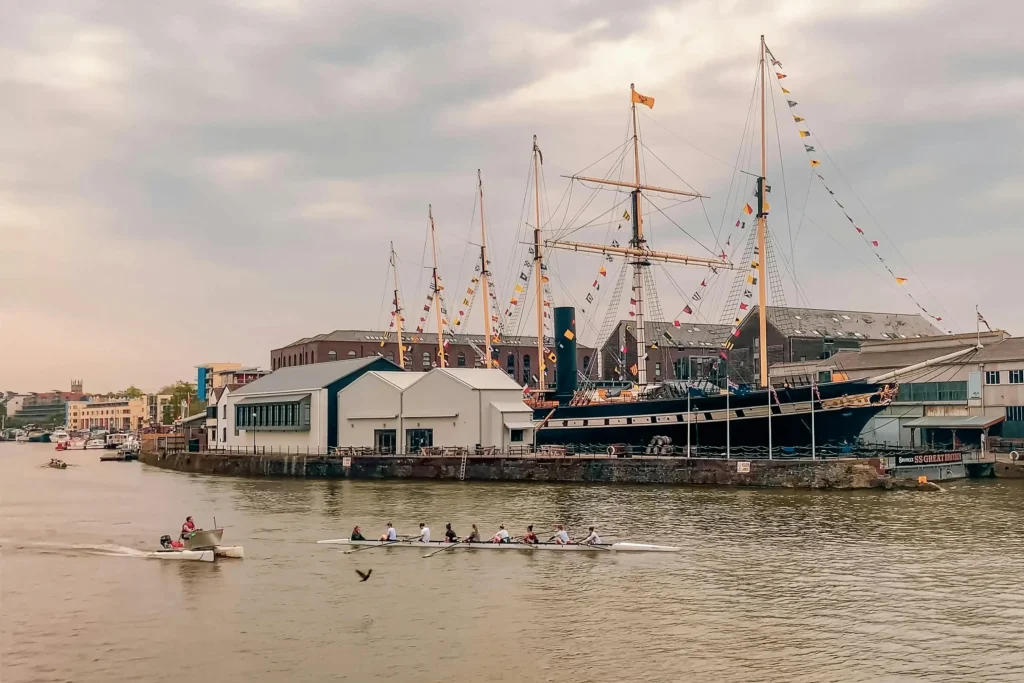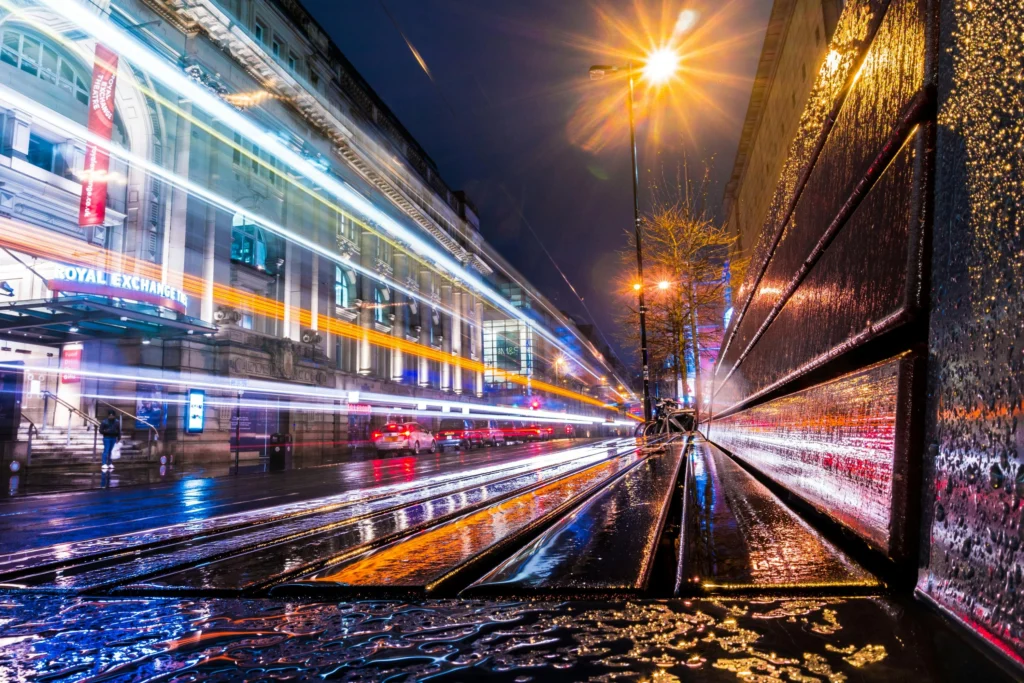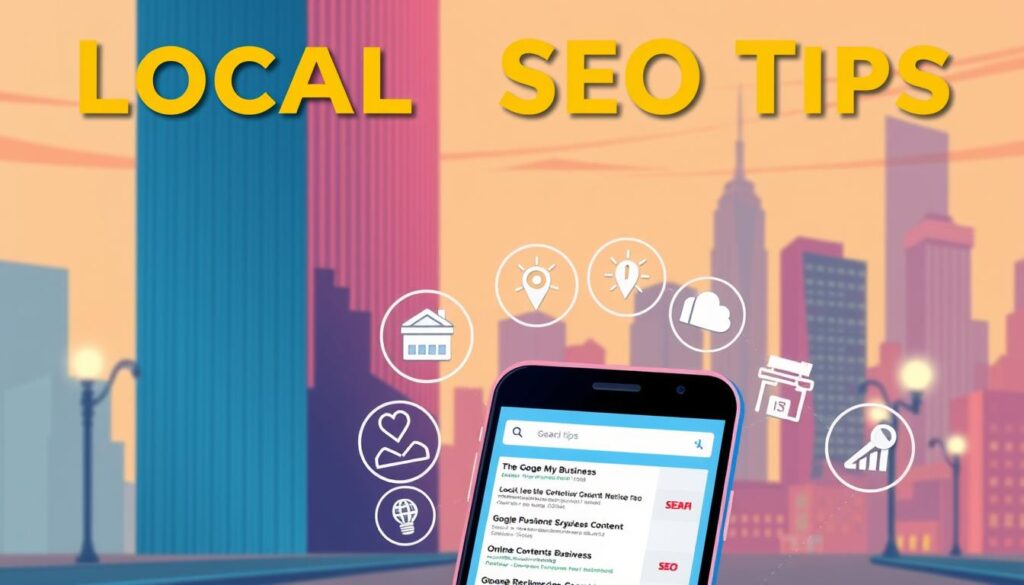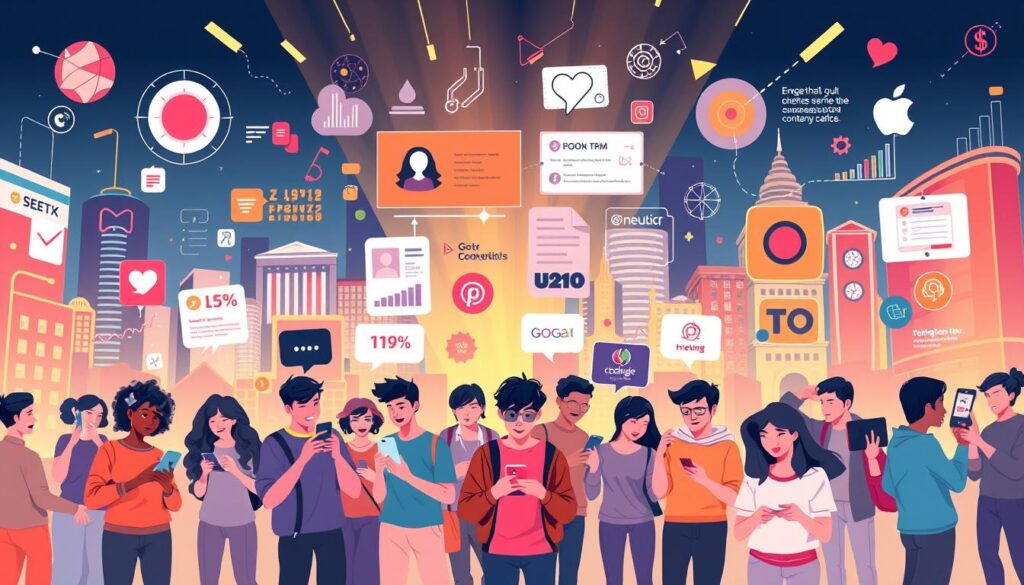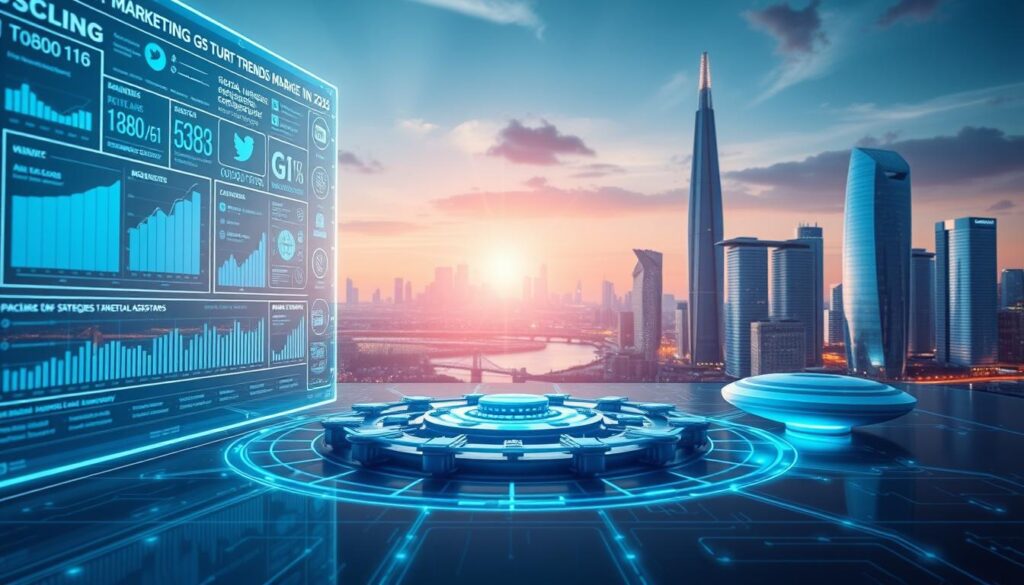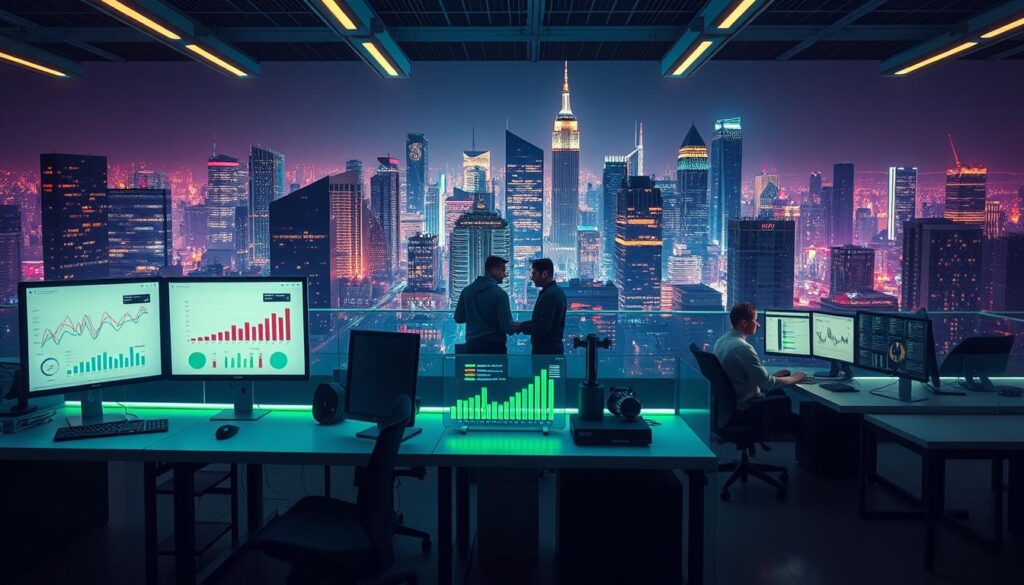In today’s competitive UK marketplace, businesses are constantly seeking innovative ways to connect with their audiences. This is where a brand activation agency comes into play, specialising in creating engaging live, online, and hybrid events, retail pop-ups, and immersive multimedia experiences. These activities are designed to boost brand awareness and foster customer loyalty.
By orchestrating memorable experiences, these agencies help brands build strong emotional connections with consumers. Whether it’s through a lively event, an interactive retail pop-up, or a multimedia campaign, the goal is to create lasting impressions that drive engagement and advocacy.
Live events and retail activations are particularly effective. They offer a unique opportunity for direct interaction, allowing consumers to experience products or services firsthand. This hands-on approach not only enhances brand visibility but also encourages immediate purchases and long-term loyalty.
Having a dedicated agency can be a game-changer. They bring expertise in strategy, creativity, and execution, ensuring that each activation aligns with your business objectives. From conceptualisation to delivery, they handle every detail, making the process seamless and impactful.
In this guide, we’ll explore the different types of brand activation agencies, share real-world case studies, and provide insights into how you can leverage their services to elevate your brand. Whether you’re looking to launch a new product or revitalise your marketing strategy, understanding the role of these agencies is essential for success in today’s dynamic market.
Key Takeaways
- Brand activation agencies specialise in creating immersive experiences to connect brands with their audiences.
- Live events, pop-ups, and multimedia activations enhance brand awareness and customer loyalty.
- Dedicated agencies can significantly improve the effectiveness of your marketing efforts.
- Understanding different agency types and their approaches is crucial for choosing the right partner.
- Real-world examples demonstrate how brand activation can drive tangible business results.
Introduction to Brand Activation in the UK
Brand activation plays a pivotal role in the UK’s dynamic marketing landscape, offering businesses a powerful tool to captivate and engage their target audiences. By leveraging innovative strategies, companies can create memorable experiences that foster lasting connections with consumers.
Understanding the UK Market
The UK market is characterised by diverse consumer trends and behaviours, making it essential for businesses to tailor their approaches. For instance, Airbnb’s “Night At” campaign successfully generated significant social media buzz, expanding brand reach and attracting new users. Such examples highlight the importance of aligning activation strategies with local consumer preferences and cultural nuances.
Why Brand Activation Matters Today
In today’s competitive environment, brand activation is more crucial than ever. It allows businesses to cut through the noise and deliver impactful experiences that resonate deeply with consumers. Research indicates that brand activation can lead to a 70% increase in customer engagement, while personalised experiences can enhance loyalty by 60%. These statistics underscore the tangible benefits of investing in effective activation strategies.
| Aspect | Traditional Marketing | Brand Activation |
|---|---|---|
| Engagement | Passive | Active and Immersive |
| Impact | Short-term Awareness | Long-term Emotional Connection |
| Results | Lower Engagement Rates | 70% Increase in Engagement |
By understanding the UK market and leveraging brand activation, businesses can create memorable experiences that drive engagement and loyalty. For more insights on effective brand activation strategies, explore how these approaches can elevate your marketing efforts.
Understanding What Is a Brand Activation Agency
Brand activation agencies are specialists in creating immersive experiences that bring your brand to life. They bridge the gap between strategy and real-world engagement, transforming concepts into tangible, memorable moments for your audience. Whether through live events, pop-ups, or digital campaigns, these agencies focus on making your brand stand out in a crowded market.
Defining the Role and Purpose
The primary role of a brand activation agency is to craft experiences that resonate deeply with your target audience. They handle everything from strategy development to event execution, ensuring every detail aligns with your business goals. Their expertise lies in combining creative design with logistical precision to deliver impactful campaigns that drive engagement and customer loyalty.
Key Components of an Effective Agency
A successful brand activation agency excels in several key areas. First, they develop a clear strategy that defines your objectives and target audience. Second, they design creative concepts that capture attention and convey your brand’s message. Third, they manage the logistics of event execution, ensuring every aspect runs smoothly. Finally, they measure the impact of your campaign to refine future efforts.
These agencies also differentiate themselves by offering services that go beyond traditional marketing. Unlike design firms that focus solely on visuals or fabrication studios that concentrate on physical structures, brand activation agencies provide end-to-end solutions that integrate all elements of a campaign. This holistic approach ensures that every activation is cohesive and impactful.
For example, consider a recent campaign by a leading beverage company. The agency designed an interactive pop-up experience that allowed consumers to customize their own drinks. This activation not only boosted brand awareness but also encouraged social media sharing, reaching a wider audience and driving sales.
By partnering with a brand activation agency, you gain access to a team of experts who understand how to create memorable experiences. They know how to engage your audience, whether through live events, online campaigns, or hybrid activations. Their goal is to help your brand build lasting connections with consumers, driving both immediate and long-term success.
Exploring Experiential Marketing Techniques
Experiential marketing is a powerful tool for creating memorable connections with your audience. By focusing on immersive experiences, businesses can drive engagement and build lasting relationships with consumers.
Live Events and Immersive Experiences
Live events offer a unique opportunity for direct interaction. Pop-up shops and trade shows allow consumers to engage with products in person, creating memorable experiences that foster brand loyalty. These events often incorporate sensory elements like visuals, sounds, and even scents to create an immersive atmosphere.
For instance, a fashion brand might host a pop-up shop where customers can customize their own clothing. This hands-on approach not only boosts engagement but also encourages social media sharing, expanding the brand’s reach.
Digital and Hybrid Activations
Digital and hybrid activations are becoming increasingly popular. These campaigns blend online and offline interactions, offering flexibility and broader reach. Virtual reality (VR) experiences and live-streamed events allow consumers to participate remotely, making them ideal for global audiences.
Hybrid events, such as virtual product launches with live Q&A sessions, combine the best of both worlds. They enable brands to connect with a wider audience while maintaining the immediacy of live interaction. This approach also allows for real-time feedback, helping businesses refine their strategies.
Both live and digital activations leverage technology, design, and strategic planning to enhance impact. By understanding your target audience’s preferences, you can choose the techniques that best align with your business goals. Whether through immersive live events or innovative digital campaigns, experiential marketing offers a dynamic way to captivate and engage your audience, driving both immediate and long-term success.
Diverse Types of Brand Activation Agencies
Brand activation agencies come in various forms, each offering unique services tailored to specific business needs. From full-service experiential marketing firms to specialised event planners, the choice depends on your project’s scope and complexity.
Experiential Marketing Agencies and Their Strengths
Experiential marketing agencies excel at creating immersive, end-to-end campaigns. They combine creativity with strategic planning to deliver memorable experiences that engage your audience emotionally. These agencies often use sensory marketing techniques, such as interactive displays or virtual reality, to create lasting impressions.
For instance, an experiential agency might design a pop-up shop where customers can customise products, fostering brand loyalty and encouraging social media sharing. Their holistic approach ensures every aspect of the campaign, from concept to execution, aligns with your business goals.
Event Planners, Design Firms, and Fabrication Studios
Event planners focus on logistical excellence, ensuring every detail of your event runs smoothly. They manage budgets, venues, and timelines, making them ideal for businesses prioritising organisation and efficiency. However, they may lack the creative expertise of experiential agencies.
Design firms and fabrication studios specialise in creating visually stunning elements. Whether it’s digital signage or custom installations, these partners bring your brand’s aesthetic to life. Fabrication studios, in particular, focus on building physical structures, offering precision and quality in their craftsmanship.
| Agency Type | Strengths | Weaknesses |
|---|---|---|
| Experiential Marketing Agencies | • End-to-end creative solutions • Emotional audience engagement • Strategic campaign alignment | • Higher costs for smaller projects • May overwhelm with comprehensive services |
| Event Planners | • Logistical expertise • Budget management • Timely execution | • Limited creative input • Focus on execution over strategy |
| Design Firms | • Visual and creative excellence • Brand aesthetic enhancement | • Lack of execution capabilities |
| Fabrication Studios | • High-quality physical structures • Precision craftsmanship | • Limited to production, no event management |
Choosing the right agency depends on your project’s needs. For complex campaigns requiring creativity and strategy, a full-service experiential agency is ideal. For smaller projects or specific needs, specialised vendors like event planners or design firms might be more cost-effective.
In conclusion, understanding the strengths of each agency type helps you make informed decisions. Whether you need immersive experiences, logistical support, or creative design, selecting the right partner ensures your campaign resonates with your audience and drives business success.
Strategies for Engaging Your Target Audience
Engaging your target audience effectively is crucial for building lasting connections and driving business success. Personalisation plays a key role in making these connections meaningful and impactful.
Personalising Consumer Experiences
In today’s fast-paced market, consumers expect more than generic messages. They crave experiences tailored to their preferences and interests. Personalised activations create emotional bonds, turning casual interest into loyal advocacy. By leveraging data and insights, businesses can craft campaigns that resonate deeply with their audience.
One effective method is using customer data to design bespoke campaigns. For instance, a beauty brand might offer personalised product samples based on individual skin types. This approach not only boosts engagement but also encourages social media sharing, expanding brand reach organically.
The role of data cannot be overstated. Analytics tools help uncover consumer behaviour patterns, enabling brands to refine their strategies. For example, a company might discover that its audience prefers interactive events over traditional ads, leading to more targeted activations. By aligning campaigns with these insights, businesses can achieve a 25% improvement in future campaign effectiveness.
A prime example is Coca-Cola’s “Share a Coke” campaign, which replaced logos with popular names. This simple yet powerful personalisation strategy led to a 7% increase in sales and millions of social media engagements. Such campaigns demonstrate how personalisation can drive both immediate and long-term success.
To enhance your strategy, consider integrating social media contests or user-generated content. These tactics not only increase engagement but also foster a sense of community. For more insights on effective brand activation strategies, explore how personalisation can elevate your marketing efforts.
In conclusion, personalisation is key to capturing your audience’s attention and fostering loyalty. By understanding your consumers’ preferences and leveraging data, you can create activations that leave a lasting impression. Remember, the goal is to turn consumers into brand advocates who share their positive experiences with others.
Leveraging Social Media and Digital Tools
The digital age has revolutionised how brands connect with their audiences. Social media platforms now play a crucial role in amplifying brand activation efforts, engaging consumers before, during, and after events.
Integrating Social Media Platforms
Combining social media into your activation strategy can significantly enhance its reach and impact. For instance, live events can be streamed on platforms like Instagram or Facebook, allowing a broader audience to participate. Additionally, digital tools like virtual reality (VR) can create immersive experiences, making remote attendees feel as though they are part of the event.
One notable example is Coca-Cola’s “Share a Coke” campaign, which personalised bottles with popular names. This strategy not only boosted sales by 7% but also generated millions of social media engagements. Such campaigns demonstrate how social media can drive both immediate and long-term success.
| Platform | Strengths | Weaknesses |
|---|---|---|
| Visual storytelling, high engagement rates, ideal for influencer partnerships | Content has a shorter lifespan compared to other platforms | |
| Large user base, effective for targeted ads, supports live streaming | Less engaging for younger audiences compared to TikTok | |
| TikTok | High viral potential, popular among younger demographics, short-form video success | Content can be challenging to moderate and control |
Influencers and user-generated content add authenticity to campaigns. For example, the ALS Ice Bucket Challenge went viral, raising $115 million, largely due to widespread social media participation. This highlights the power of digital tools in creating impactful activations.
Real-time engagement techniques, such as live Q&A sessions or polls, keep audiences active during events. Measuring engagement through likes, shares, and comments helps refine future strategies. Combining digital and traditional methods ensures a cohesive approach, maximizing reach and impact.
Aligning Brand Activation with Business Goals
Aligning your brand activation strategy with clear business objectives is crucial for driving success. By focusing on specific goals, you can create campaigns that not only boost brand awareness but also foster long-term loyalty. Whether you’re launching a new product or entering a new market, a well-defined strategy ensures every activation supports your broader business aims.
Building Brand Awareness and Loyalty
Brand activation is a powerful tool for increasing visibility and creating emotional connections with your audience. Through immersive experiences, such as live events or interactive campaigns, you can capture attention and leave a lasting impression. This approach not only enhances recognition but also builds trust, essential for turning consumers into loyal advocates.
Customising Campaigns to Fit Your Objectives
To truly resonate with your audience, tailor your campaigns to their preferences and your business goals. For example, if your objective is to launch a new product, consider hosting an exclusive event that offers hands-on experiences. This not only generates excitement but also encourages immediate engagement and sharing on social media.
Measuring success against strategic objectives ensures you understand the impact of your activations. By tracking metrics such as engagement rates, social media shares, and sales uplift, you can refine future campaigns for even greater effectiveness. This data-driven approach helps you view brand activation as a strategic investment, not just a one-off event.
Measuring Success and ROI in Brand Activations
Understanding the effectiveness of your brand activation efforts is crucial for refining strategies and ensuring a strong return on investment. By focusing on clear metrics and thorough analysis, you can accurately measure the impact of your campaigns and make informed decisions for future activations.
Setting Key Performance Indicators
Key Performance Indicators (KPIs) are essential for evaluating the success of brand activation campaigns. Common metrics include engagement rates, such as social media interactions and event attendance, as well as brand loyalty measurements like customer retention and Net Promoter Scores (NPS). These indicators provide insights into how well your campaign resonates with your target audience and drives desired outcomes.
For instance, a successful activation might see a significant increase in social media followers or a boost in sales directly linked to the event. Advanced tools can help track these metrics, offering a clear picture of your campaign’s effectiveness.
Post-Campaign Reviews and Adjustments
After the activation, a thorough review is necessary to identify strengths and areas for improvement. This involves analysing data collected during the campaign, such as engagement levels and consumer feedback, to refine future strategies. Adjustments might include tweaking the targeting approach or enhancing the creativity of your next activation based on the insights gathered.
Regular post-campaign analyses ensure that each activation builds on the previous one, leading to continuous improvement and greater ROI over time.
For a deeper understanding of how to measure ROI in experiential marketing campaigns, visit this resource. Additionally, exploring specialised services can provide further guidance on refining your brand activation strategies.
Conclusion
In the ever-evolving UK marketing landscape, brand activation stands out as a powerful strategy to connect with consumers on a deeper level. This approach transforms passive observers into active participants, fostering meaningful engagement and loyalty.
Partnering with a specialised brand activation agency can elevate your marketing efforts. These experts craft immersive experiences that align with your business goals, ensuring every campaign drives measurable results. Whether through live events or digital activations, their strategies are designed to captivate and engage your target audience.
Personalisation and creativity are key to successful brand activation. By tailoring experiences to consumer preferences, you build emotional connections that enhance loyalty. Strategic planning ensures that every activation, from pop-up shops to virtual reality experiences, resonates with your audience and supports your business objectives.
Ready to enhance your brand’s engagement and loyalty? Contact us today to explore how brand activation can elevate your marketing strategy and deliver tangible results.
FAQ
What does a brand activation agency do?
A brand activation agency focuses on creating engaging experiences to bring your brand to life. They specialise in connecting with your target audience through events, campaigns, and activities that build awareness and loyalty. Think of them as the bridge between your brand and your customers.
How does brand activation differ from traditional marketing?
Brand activation is all about hands-on, memorable experiences. While traditional marketing might focus on ads or social media, activation agencies create immersive events or campaigns that let people interact with your brand directly. It’s more about doing something together than just telling them about it.
Why is brand activation important for businesses today?
In today’s crowded market, standing out is tough. Brand activation helps you cut through the noise by creating personal connections. Whether it’s through live events, pop-up shops, or digital experiences, activation helps build trust and loyalty with your audience.
What types of services do brand activation agencies offer?
They offer a wide range of services, from planning live events and creating immersive experiences to designing digital campaigns. Some agencies also specialise in event production, social media integration, or even fabricating custom installations for your brand.
How do I measure the success of a brand activation campaign?
Success is measured through clear goals like brand awareness, customer engagement, or sales. Agencies often use KPIs such as foot traffic, social media shares, or direct feedback from attendees. Post-campaign reviews help refine future efforts too.
Can brand activation work for both online and offline audiences?
Absolutely! While live events engage people in person, digital activations like virtual events or social media campaigns reach online audiences. Many agencies now blend both for a hybrid approach that covers all bases.
How do I choose the right brand activation agency for my business?
Look for an agency that understands your audience and goals. Check their past work and ask about their expertise in areas like event marketing or digital engagement. The best fit will align with your brand’s values and help you achieve your objectives.

